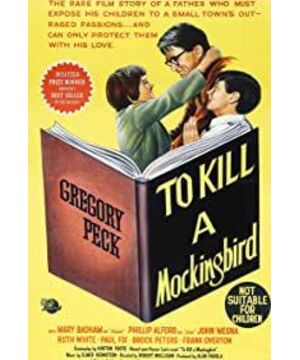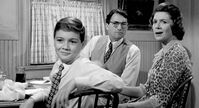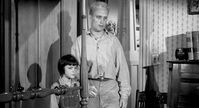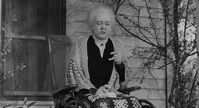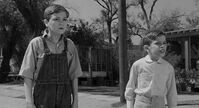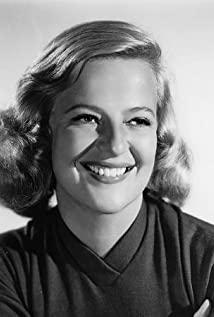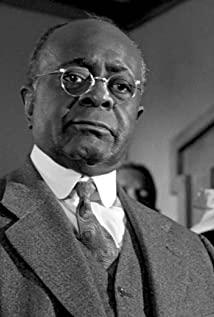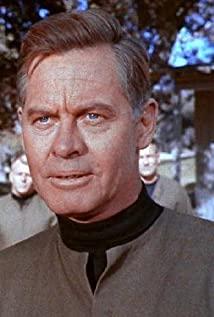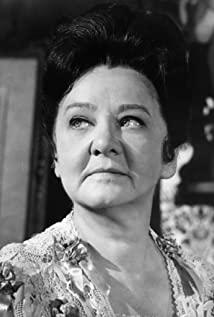This is a novel published in 1960 and a black-and-white film released in 1962. It is the only full-length novel published by American female writer Harper Lee in her lifetime. It won a Pulitzer in the second year of publication. Award, the famed Harper Lee retreated to a small town, and when faced with people's questions, her answer was: "It's happened once, what else is there to write about?" The film of the same name based on the book, perhaps not It's not as famous as the original, but when you open this movie, a sense of history and time comes to your face. You can see the life of an ordinary small town in the southern United States under the Great Depression of the 1930s. People's thought-forms are told from the perspective of a child (Joan Louise, aka Scooter). "Prejudice in people's hearts is a mountain." When it comes to this work, this is a topic that people will always talk about. A white lawyer who is willing to fight for black people is indeed a righteous person who dares to fight against prejudice in people's hearts and racial discrimination, but what I want to talk about here is a real father. Everyone was a child once, and maybe many people forget that, so "he was still a child." This sentence often serves as an excuse for elders to justify themselves or their children. This excuse has become a reason to avoid answering some of the children's questions, and it has also become a reason to comfort yourself not to care about the children's mistakes, but in fact, when you are willing to say, children also have their own way of understanding the problem. "Why does he pay you this way?" "Because he can only pay me this way, he has no money." "Atticus, are we poor?" Atticus nodded. "We're poor." Because the Cunninghams didn't have the money to pay the lawyer's fees, they used their own property instead. "You know what?" said Atticus, "that's what Dr. Reynolds charges for. He delivers a baby, and they give him a bushel of potatoes. Scout, if you'll listen carefully, I can give you the limit. What's going on with the heir. Jem's explanation is sometimes quite accurate." (Above is the dialogue between the father and the child in the work) The father did not evade the family situation, but admitted it directly without being humble or arrogant, and explained their problems to the children seriously in a popular way. Maybe the children still don't understand what "limited inheritance" is, but in the back, Scout shows that she has understood what "true dignity" is. There are many more such episodes: Atticus has a very busy life as a lawyer and a single father, but he takes young Scooter to read all kinds of articles every day; when Scooter because of extraordinary reading When she was accused by the teacher, he did not tell her what you should do or who you should listen to, but explained to her the reasons for the school's practice and let her judge and measure by herself; Curious about the seven-year-old Scooter's question about "sex", he did not embarrass or evade, but patiently answered her questions one by one until she understood. Atticus said: "When a child asks you a question, you have to answer it seriously, don't be evasive, don't judge him. Although children are only children after all, they will be more sensitive than adults. You are unaware that you are avoiding the problem, and avoiding the problem will only make them confused." In many cases, love does not equal respect, you can love your child as a child, but you also need to respect him as a friend, both Respect the wild imagination and all kinds of bizarre questions in his brain, as well as the innocence, kindness and curiosity he shows in the world. The work uses a dual-lead structure, with Radley, the eccentric who lives nearby, a main thread that runs through the text, and Atticus' defense of a black man falsely accused of raping a white woman is another thread that culminates in both the original and the film. . This is also the paragraph that best explains the title of the book: To Kill a Mockingbird. When you appreciate this fragment in the movie and book, you may be puzzled and angry at the blatant discrimination that most people in that era took for granted, but in fact, despite the efforts of countless people, prejudice still exists in every Around a person, this prejudice comes not only from the discriminator, but also from the discriminated. I often wonder: Why did Atticus bring his child to the courtroom? Even if he knew that his children would hear the accusations against his father, even if he knew that he would face the pressure of public opinion, even though he knew that he would face a high probability of failure. My answer: He wants his kids to understand the word "prejudice." In my opinion, this word is very hidden and utilitarian. Let's ask ourselves a question: "After reading books for so many years, why do we study?" Or, "We value children's learning so much, but why do we value it?" I think many people may be at a loss for words, and it is difficult to express themselves honestly s answer. So do I. I think many people's answer, maybe "for a better life". This is probably the most realistic and direct answer, and should add a "me" or "family" in the middle. But can we just tell our kids this answer? While he was still a child? I once read a story: a father and his son saw a beggar on the side of the road. Many people would educate their children: "Study hard, or you can only do this in the future." But the father told his children: " Study hard, so that you will be able to help them later." If the word "learning" is mixed with too much utilitarianism, it will be biased by itself - bias against career, bias against success or failure. When everyone is rushing to pursue this road, then this road is not only congested, but also indifferent. The batch of "exquisite egoists" it has cultivated have long since forgotten what kind of child he used to be, and what kind of adult he wanted to be when he was a child. "Atticus, are we going to win?" "No game, baby." "Then why... "We can't give up trying to win just because we've been utterly defeated in the past 100 years." (The above is the dialogue between the father and the child in the work.) In my opinion, the odd man "Radley" mentioned above can represent another kind of prejudice. "The Radley house is always closed on Sundays. Again, it's out of step with the Maycomb approach: closing doors and windows means someone in the house is sick or it's cold. "It was thought that there was a malevolent ghost living in the house. "Atticus teaches children not to comment at will, let alone disturb other people's lives, and at the end of the story, Radley saves Atticus' children at a critical moment. The so-called blindfolded, no Tarzan, refers to what we encountered People and things are not necessarily what we see, sometimes we will find different truths when we look beyond our own perspective. Children's eyes will be more simple, and fairy tales are also two ends of good and evil. The beauty and ugliness are distinct. Many people say that when they grow up, they "smooth the edges and corners", which is probably the reason. I don't think this is necessarily a bad thing. His lips parted slightly, and a shy smile appeared. My eyes suddenly Filled with tears, the neighbor's face instantly became blurred. "Hello, weirdo. "I say. (The above is the scene where Scooter meets the "weird" Radley.) In the eyes of many people, whether it is a book or a movie, it can be said to be a tragic ending. I will not comment on this point, but in the ending, the children show calmness and unity in the face of danger that many adults do not have, and they are willing to make concessions in order to weigh the overall situation and say that they are self-defense. All can illustrate the success of Atticus' father's education. "Scooter, when you finally get to know them, most of them are good people." That's what a father tells his daughter, and it's the end of the book. What he took his children to see, although only in a small town, was a wider side of the world. "A saint's argument does not matter what the heart is, no one can be called a saint." I think what we need to teach our children is not how beautiful the world is, nor how terrible the world is, but how to face justice. The world, and the courage to face it. Perhaps from the very beginning, the title of "To Kill a Mockingbird" set the tone for this work, which was positioned as "children's literature" in the United States. But I think it's a book for everyone, a "there was once, what else could be written" book. "It doesn't matter how many bluebirds you shoot, but remember, it's a sin to shoot a robin. Robins sing to us and do nothing bad. They don't eat flowers in people's gardens. Vegetables, don't make a nest in a corn barn, they just sing for us from the heart. That's why it's a sin to kill a robin all the time." We don't want to teach our children to be a no-fault but someone else The robin who controls destiny, but we at least tell our children not to be a robin-killer. At the same time, we should not be the one who killed the robin. Parents and children should be mutually successful.
View more about To Kill a Mockingbird reviews


